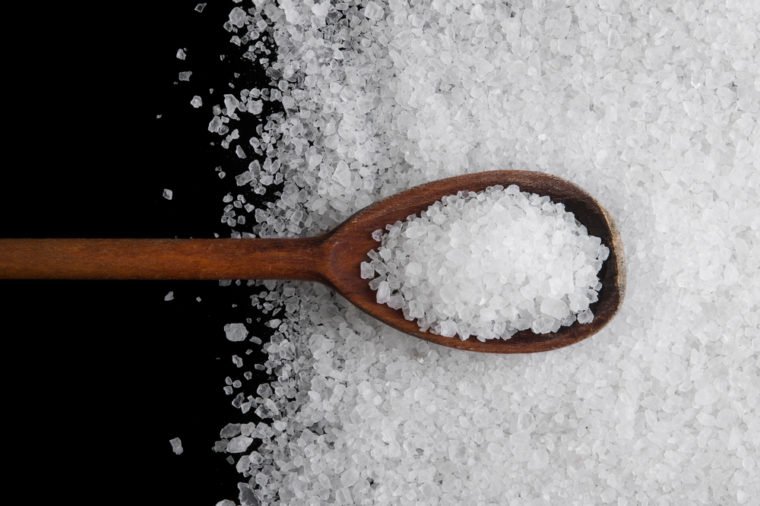
Salt
In the 1970s, a scientist fed an amount of sodium to rats that would be equivalent to about 500 grams in humans (most people in the United States eat an average of 3.4 grams per day), reports Scientific American. The rats’ blood pressure went up, and the medical community raised the alarm about salt.
Americans never really embraced the message—federal guidelines recommend that we only eat 2.3 grams of sodium, or about a teaspoon of salt, per day, but restaurant meals and processed foods contain such large amounts of sodium that few people meet that limit.
Perhaps the concern is misplaced: A 2016 study in the Lancet suggests that the limits are overly stringent. Among subjects consuming high amounts of sodium, only those with high blood pressure experienced higher rates of cardiovascular problems.
Surprisingly, people who consumed the lowest amounts of sodium—whether or not their blood pressure was high—also experienced more cardiovascular events and deaths. Government recommendations haven’t changed, but many researchers don’t consider them settled, according to NPR’s health care blog

























